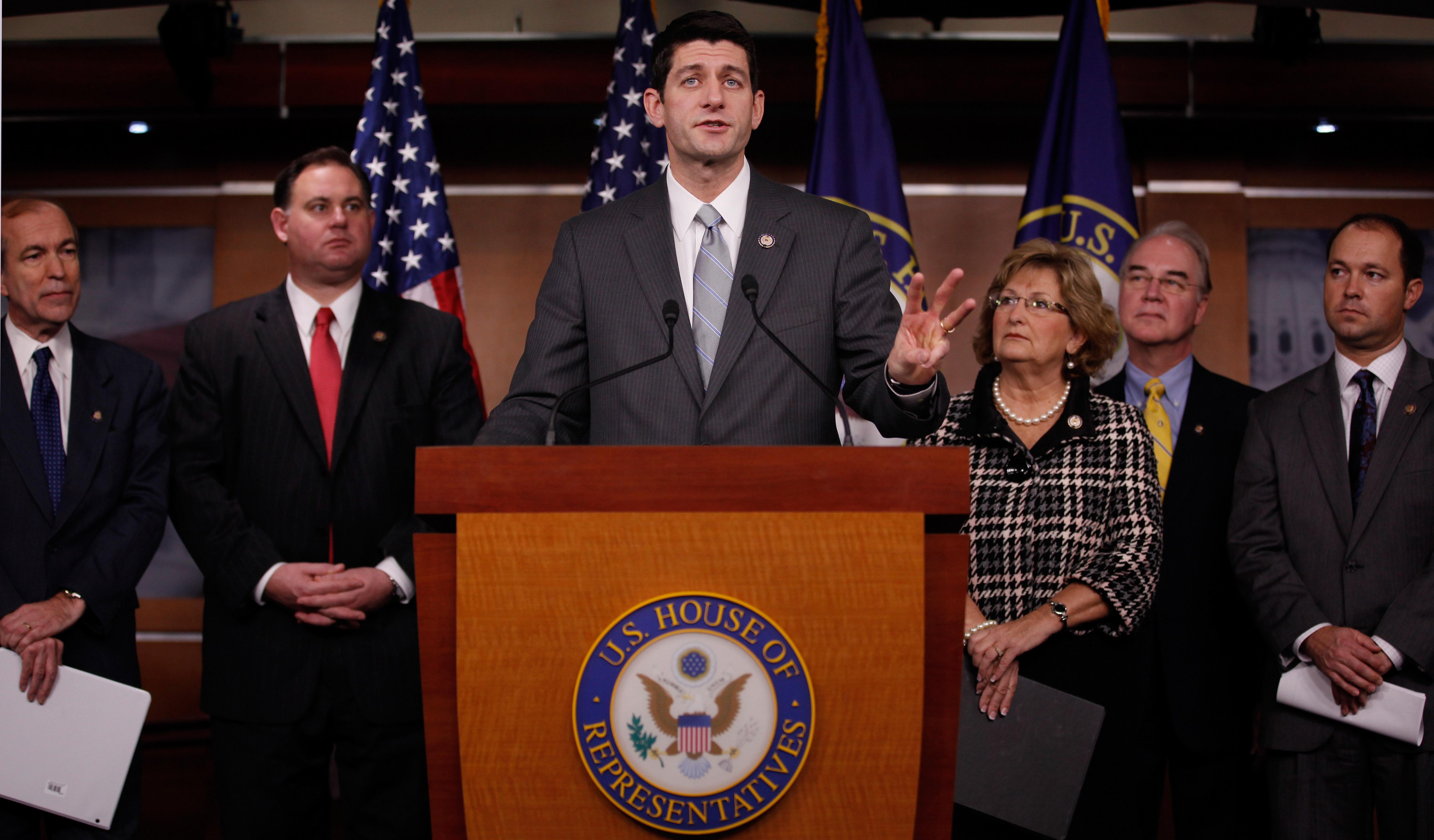A very intriguing new development on the health care front over the past 24 hours, as Paul Ryan and Ron Wyden team up to offer a proposal under which individuals will be faced with a mandate to buy government-subsidized health insurance on regulated “exchanges” that will include a robust public option with Medicare payment rates. This is, in other words, a position somewhat to the left of the original House of Representative version of the Affordable Care Act and considerably to the left of the version that the president signed into law. So way does Paul Ryan, grandee of the right, like it so much? Well because instead of applying to non-elderly Americans the way the Affordable Care Act did, the new Ryan-Wyden plan will replace Medicare (without, allegedly, altering the benefits enjoyed by current retirees or people who retire within the next ten years).
Relative to the Medicare status quo, this would be a gigantic rightward leap. But relative to where Paul Ryan was 12 months ago, it’s a gigantic leftward leap. Most notably, there’s at least some reason to believe that competitive bidding between private and public Medicare providers will generate some real cost savings. But if publicly run Medicare continues to be the most cost-effective option for most people (as I think there’s every reason to believe it will be) the vast majority of elderly people will still be basically getting insurance from Medicare.
The real cost savings here, however, don’t actually come from the structural reforms. Instead, as in Ryan’s original Medicare privatization plan, money is saved via an arbitrary cap on spending. But while the plan the House of Representatives passed early this year capped the growth in Medicare spending at an absurd rate of CPI + one percentage point, Ryan-Wyden caps it at a still-ambitious-but-not-totally-insane GDP + one percentage point. And the cap, to be honest, is where all of the action is. The big difference between US Medicare and single-payer health plans that exist abroad (aside from the fact that only old people get it) is that Medicare is unique in not having a fixed budget. Most public programs in the United States, and most health care programs abroad, have a certain amount of money appropriated to them and then they provide what services they can within the budget constraint. Medicare, by contrast, has a benefits formula and then whatever it costs that’s what ends up getting spent. That’s a great deal for America’s doctors, hospitals, and senior citizens but it’s not sustainable. When you have a budget, then you can have a debate about how to deliver services cost effectively. I wish Congress would actually separate this budget issue out from the question of Medicare structure. How large a share of America’s output do we want to allocate to health care services for the elderly is a very important question. What that spending should look like is also a very important question, but it’s a fundamentally separate one.
